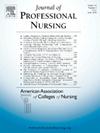在护理教育中培养感恩的文化
IF 2.9
3区 医学
Q1 NURSING
引用次数: 0
摘要
COVID-19大流行严重影响了包括护理教职员工在内的医疗保健专业人员的士气。为了解决这个问题,一所护理学院成立了一个感恩团队,以提高士气,创造一个支持性的工作环境。感恩增强了个人的价值感,同时也促进了忠诚、工作满意度、留任率、绩效、协作、创造力、幸福感和领导力的发展。尽管对职场感恩进行了广泛的研究,但对同事之间感恩干预结果的研究却很有限。这份手稿详细介绍了在工作场所评估感恩所涉及的步骤,建立一个感恩团队来实施感恩活动,比如故意写笔记,认可事件,以及善良的行为,并评估其有效性。这些活动与AACN要点的第10领域保持一致,该领域强调护理课程中的自我照顾和福祉。以感恩为基础的环境能促进心理健康、学业成功,并倡导健康的工作场所。组建一个感恩团队是培养感恩文化的一种有效方法,这种文化会产生持久的影响,在护理教育中建立一种同情、卓越和弹性的遗产。本文章由计算机程序翻译,如有差异,请以英文原文为准。
Fostering a culture of gratitude in nursing education
The COVID-19 pandemic significantly impacted the morale of healthcare professionals, including nursing faculty and staff. To address this, a college of nursing developed a Gratitude Team to boost morale and create a supportive work environment. Gratitude enhances an individual's sense of value while fostering loyalty, job satisfaction, retention, performance, collaboration, creativity, well-being, and leadership development. Despite extensive research on workplace gratitude, studies on outcomes of gratitude interventions between colleagues are limited. This manuscript details the steps involved in assessing gratitude within a workplace, developing a Gratitude Team to implement gratitude-forward activities, such as intentional note writing, recognition events, and acts of kindness, and evaluating its effectiveness. These activities align with Domain 10 of the AACN Essentials, which emphasizes self-care and well-being in nursing curricula. Gratitude-rooted environments enhance mental health, academic success, and advocacy for healthy workplaces. Incorporation of a Gratitude Team can be an effective method for fostering a culture of gratitude that leaves a lasting impact, building a legacy of compassion, excellence, and resilience in nursing education.
求助全文
通过发布文献求助,成功后即可免费获取论文全文。
去求助
来源期刊
CiteScore
4.80
自引率
8.00%
发文量
153
审稿时长
52 days
期刊介绍:
The Journal will accept articles that focus on baccalaureate and higher degree nursing education, educational research, policy related to education, and education and practice partnerships. Reports of original work, research, reviews, insightful descriptions, and policy papers focusing on baccalaureate and graduate nursing education will be published.

 求助内容:
求助内容: 应助结果提醒方式:
应助结果提醒方式:


